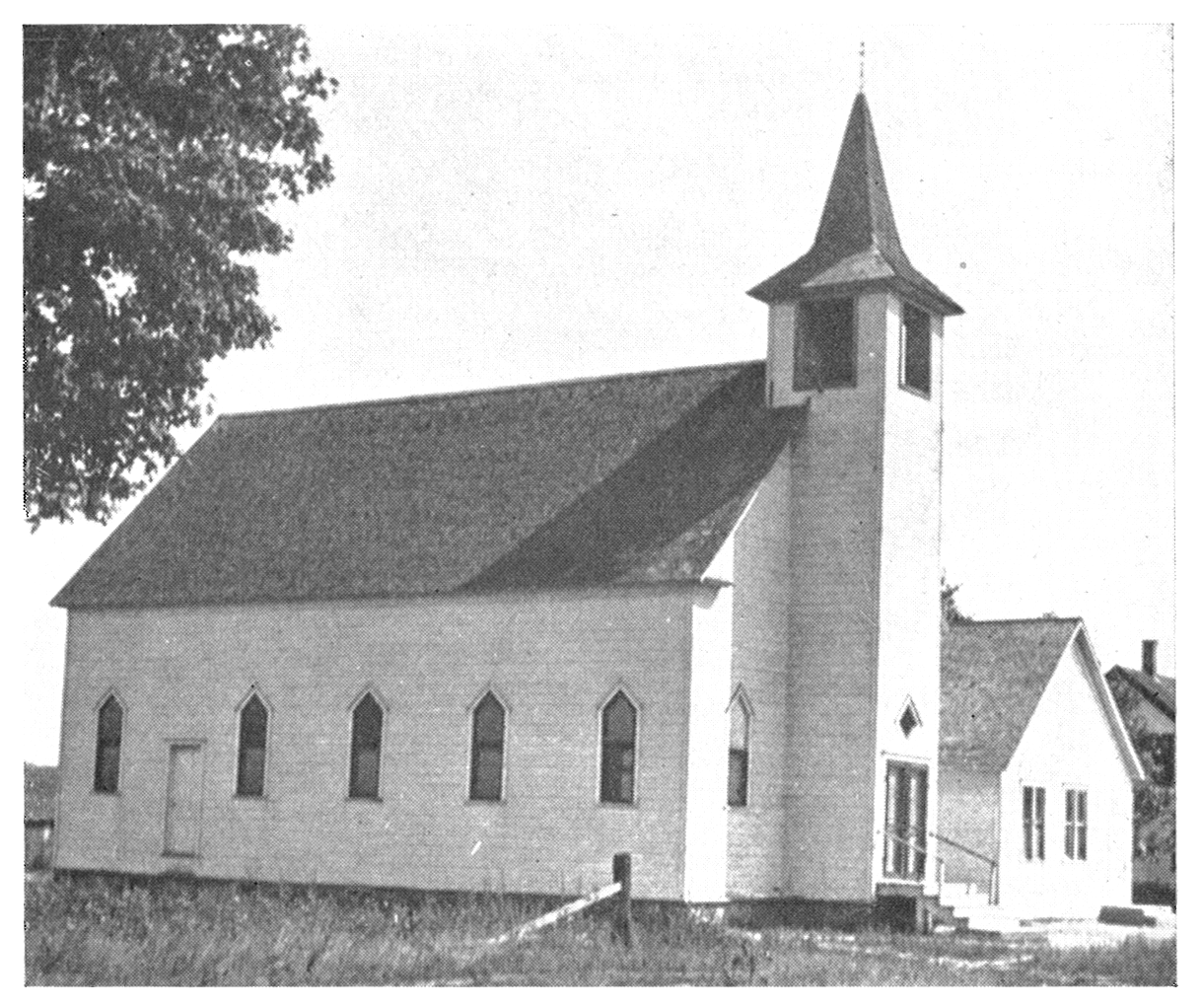Remember and Repent
The first two revitalization strategies are remember and repent.
Chapter 3: Revitalization Strategy 1: Connect to the Past
Harry Reeder encourages churches to learn from the past without living in the past. Congregations benefit from being connected to their local church’s history, as from an awareness of the great tradition of the Christian faith. Reeder writes: “A revitalization pastor will learn from the past in order to live in the present so that the church can change the future” (38).

Original building of the Cutlerville Christian Reformed Church
The History of the Local Church. Reeder emphasizes the importance of working to understand a congregation’s history. He tells the story of a pastor who followed two very successful predecessors. Someone said to the new pastor: “You sure have some big shoes to fill.” And the new pastor replied: “I brought my own shoes, thank you.” Reeder emphasizes that we must avoid being trapped or dominated by the past. New pastors, he says, should neither demean the former ministry nor try to duplicate it.
The History of the Universal Church. Reeder laments that American Christians often know little about international Christianity and the history of Christianity. Our creeds and confessions, when used in worship, connect us with the great tradition of our faith, as do classic hymns. Reeder argues for beginning with “the great classical worship that at one time was contemporary and has now become tried and true, and then build on it, being ready to absorb that which is excellent in the present” (42). Good worship, he contends, avoids both “the arrogance of modernity, which disconnects from the past” and “the idolatry of traditionalism, which lives in the past.” Instead, it “is connected to the past without living in the past, contextualized in the present without accommodating the present, and setting a pattern to shape the future instead of becoming dated in the future” (42). Reeder also recommends incorporating illustrations from church history into sermons. –Who am I to argue with that?! Another suggestion is to teach people about the Old Testament.
In order not to be a maintenance ministry, but rather, a movement ministry, Reeder suggests three courses of action: Investigate, Contemplate, Celebrate.
- Investigate past blessings.
- Contemplate the lessons and principles that the Lord blessed in the past.
- Celebrate them and continue to implement them in ways that fit the gifts and resources that you currently have in your church and use the celebrations to set up new initiatives in the ministry vision that the Lord is laying out to take the church to the next level in serving Christ and expanding the kingdom.
Here at First Cutlerville, we just celebrated 20 years in our current building, on June 12, 2016. As I was preparing my sermon, I read the commemorative booklets from the 50th, 75th, and 100th anniversaries of the congregation. I learned much about our history, but perhaps also about our present character. I think it could be valuable to scan these documents and make them available online for our leaders and members. In the Church Renewal Lab, we heard that most churches work forward from their past, but we should really work backward from our future. That is: envision where God wants to lead us tomorrow, and then discern what that means for what we do today in order to get to that place.
Chapter 4: Revitalization Strategy 2: A Call to Repentance
Reeder’s second strategy, a communal, corporate repenting from past wrongs, is not a downer, he argues, but an opportunity for God to do a new thing.![2 Chronicles 714 [mobile-1262x1262].png](https://drdominee.files.wordpress.com/2016/06/2-chronicles-714-mobile-1262x1262.png?w=804) But before you can encourage a community of people to truly repent and confess sin, one must first cultivate an atmosphere of grace. We don’t repent to feel bad about ourselves; we repent joyfully because we are sure of God’s loving forgiveness earned at the high cost of Christ’s blood. Secondly, Reeder says we must also emphasize personal responsibility. We should not be making excuses for ourselves or for others. Adam blamed Eve. Eve blamed the Serpent. Third, we then have to expect the fruits of repentance. Reeder summarizes these fruits in three words: restitution, restoration, and reconciliation. His summary is helpful: “Restitution is paying back what is owed, restoration is setting things right again, and reconciliation is the renewing of relationships that have been broken by sin” (50).
But before you can encourage a community of people to truly repent and confess sin, one must first cultivate an atmosphere of grace. We don’t repent to feel bad about ourselves; we repent joyfully because we are sure of God’s loving forgiveness earned at the high cost of Christ’s blood. Secondly, Reeder says we must also emphasize personal responsibility. We should not be making excuses for ourselves or for others. Adam blamed Eve. Eve blamed the Serpent. Third, we then have to expect the fruits of repentance. Reeder summarizes these fruits in three words: restitution, restoration, and reconciliation. His summary is helpful: “Restitution is paying back what is owed, restoration is setting things right again, and reconciliation is the renewing of relationships that have been broken by sin” (50).
Repentance in the Leaders. Reeder tells the story of a church that had gone through a process of renewal. The council of this church came to a place where they felt led to confess to the congregation the sin of acting as a board of directors rather than as shepherds of the flock. They read a letter to the congregation asking for forgiveness. “As a show of unity they all brought stones marked with their names and Bible verses and piled them up together to mark the day of a new beginning rooted in the forgiveness and reconciling power of the gospel” (51).
Repentance in the Church. The Bible contains stories of how “sin in the camp” can have a negative impact on the whole community of God’s people. The story of Achan who stole booty from Jericho, is an example (Joshua 7). Reeder observes that sometimes there is “a need for corporate confession because the body as a whole has not faithfully followed God’s Word” (53). Reeder’s church ended up asking forgiveness, in a very general way, from four hundred (!) families that had left the church over 13 years. One of the results was that it put an end to a lot of negative talk in the community about the congregation. In addition, Reeder notes that very specific sins may also need to be confessed by the church.
